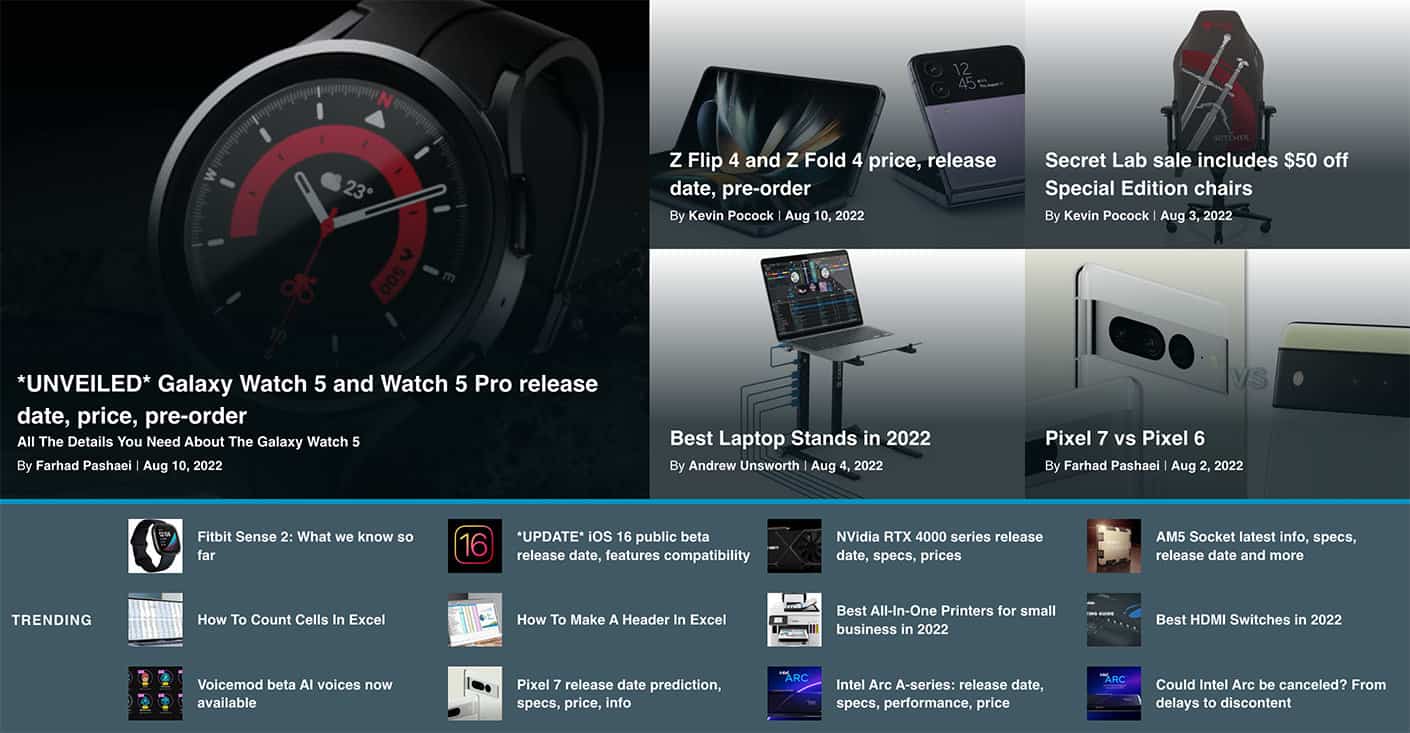Editorial policy & mission statement
Our mission at PCGuide is to share our expertise, and provide unbiased and useful content and coverage of all things tech.
Mission statement
PCGuide's mission is to be the most trustworthy and informative technology site there is. Every member of the PCGuide team, writer or not, is a lover and user of technology, and passionate about learning and sharing the best and information with our readers. Our experts thoroughly research all areas and products we cover, so you can be 100% sure you get the information you need on the topics that matter most to you.
That is our mission. To let us know if we're meeting your needs an expectations, get in touch at [email protected].
Who we are

Based out of our Manchester office, the PCGuide team includes first-class technology writers and industry veterans – including expert freelance writers and contributors who know tech inside-out. So we can provide you with first-class advice and information, in the most accessible way possible.
Technology expertise
Whatever area of tech we're covering, our writers have the expertise to cut through the noise. That means we can provide you with the information that matters, as well as useful real-world tips and recommendations you can rely on.
Our round-ups are the product of intense research and consideration. While they do include affiliate links, this never impacts our recommendations. It is our own expertise, and a ceaseless desire that everyone have the best experience of technology, which drives our experts to deliver you the best information and advice possible.
A trusted source
At PCGuide the trust of our readers is the highest priority. Our articles are produced with expert knowledge, in-depth research and the highest levels of editorial standards. We will always offer fair and unbiased advice in our reporting and product round-ups, meaning you can trust our advice and recommendations.
Independent journalism
At PC Guide we publish original, in-depth, unbiased articles and reporting, sourced and substantiated correctly. Where we use our own sources we will label this clearly. If we're reporting from another source we will always credit the original source with a link. Every PC Guide article features an author byline and a date when the article was last updated. Every writer on PCGuide is held to the very highest journalistic standards and transparency. If you feel that we have fallen short of this you can contact us at [email protected]. Where informed of factual errors in any of our pieces, we will update the story or publish a new one where appropriate.
These are the rules we operate under:
- The editor of the site will always have final say on what we review
- We do not accept any conditions from third parties that restrict what we can say
- We do not give third parties advance notice of our review scores or the power to vet any copy
- We don't accept cash or cash alternatives as an incentive to review product
- No writers will make money from any affiliate commission from a sale
- We do sometimes keep products on long-term loans for review purposes only
- We do attend product launches and promotional trips and expenses may be paid by the manufacturer or associated PR company
- We do not allow writers to cover a product where there may be a conflict of interest
IPSO
IPSO is the independent press standards organisation and its Editors' Code of Practice sets out the rules that the majority of the UK media follows. The latest version of the Editors' Code of Practice came into effect on 1 January 2021 and you can download a PDF of the 2021 Editors' Code of Practice. It sets the highest standards that PCGuide follows, on editorial integrity and putting the reader at the forefront of everything that we write.
Ethics
The PCGuide team talks to developers, publishers, manufacturers and other third parties, and are sometimes restricted by embargo dates. We will also sign NDAs as long as they don't restrict what we can say editorially. We will never agree to any pre-conditions that dictate what we can or cannot say about a product. The PCGuide team does not accept promotional items or gifts from third parties. We do receive review copies of games but these are never traded or resold. If we have a hardware product on a long-term loan, this will be for review purposes only. PCGuide (part of BGFG) does not accept money or monetary incentives to review a product.
Transparency
We will be as transparent as possible with the reader and are always open to questions or feedback about how we review products or any aspect of our work. You can get us by emailing [email protected] and we will strive to reply to any emails as quickly as possible.
We will be as transparent as possible with the reader and are always open to questions or feedback about how we review products or any aspect of our work. You can get us by emailing [email protected] and we will strive to reply to any emails as quickly as possible.
How we make money
PCGuide is funded through a mix of advertising and affiliate revenue. When you buy through links on our site, we may earn an affiliate commission. The editorial and advertising/e-commerce teams are completely separate. All editorial content is at the editor's discretion and is never influenced or modified by the commercial side of the business. The majority of the content that you'll find on PCGuide is created solely by our fantastic editorial team. We create some content with the support of a commercial partner and any sponsored or advertorial content is clearly marked at the top of every piece.
There are two different types of promoted content on PCGuide:
- Sponsored post – If an article is labelled as Sponsored it has been funded by a commercial partner but the content is independent and unbiased. The article and headline have been created by one of the PCGuide editorial team with no influence or input from the commercial partner. The article is not sent to the commercial partner for approval.
- Advertising feature – An Advertising Feature has been paid for by a commercial partner, and has been created by them or by a member of the PCGuide team under their guidance. An advertising feature is classed as commercial content and does not sit under the PCGuide editorial banner.
